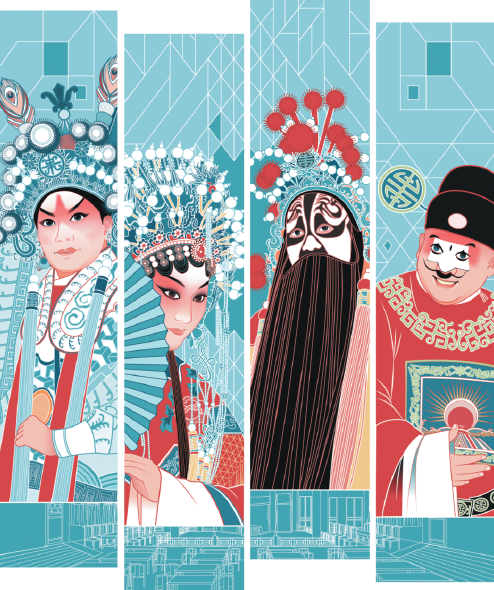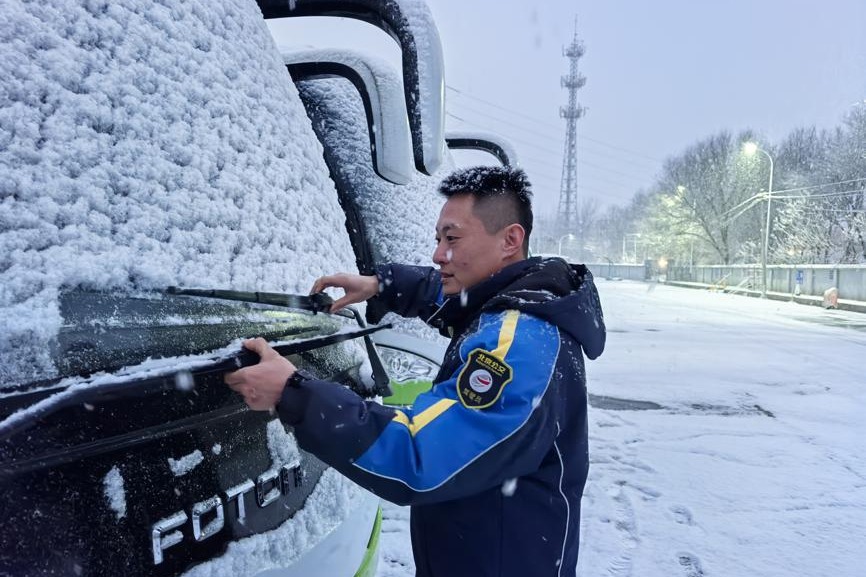Development plan for opera released
Performances in Kunshan present opportunity for beneficiaries of training to shine


Performances in Kunshan present opportunity for beneficiaries of training to shine
The Ministry of Culture and Tourism announced the annual talent development plan for performers of traditional Chinese opera on July 4.
According to the announcement, 20 traditional Chinese opera actors and actresses from around the country are on the list, and will give performances showcasing the results of the talent development plan in October in Kunshan, Jiangsu province.
This year's plan was launched in February and aims to train top performers of traditional Chinese opera.
Traditional Chinese opera comes in many forms and combines a variety of art forms, including singing, dancing, martial arts and acting, and is usually hundreds of years old. Performed in local dialects and once enjoyed by both royalty and ordinary people, it has been experiencing a decline as the result of the impact of modern forms of entertainment.
The plan covers different types of traditional Chinese opera, including Huangmeixi Opera, which is also known as caichaxi (tea-picking opera) and originated in Anqing in Anhui province during the Qing Dynasty (1644-1911), and Qinqiang Opera, which is popular in northwestern China and particularly in Shaanxi province and has its roots in the Qin Dynasty (221-206 BC).
There are 348 kinds of traditional Chinese opera, according to a report released by the Ministry of Culture and Tourism in 2017. "Compared to the figure contained in the book, Traditional Chinese Operas Chronicles, which was published in 1999 and which recounts the history and development of traditional Chinese opera, 47 varieties have died out and 17 are facing extinction," the report said.
The talent development plan was born from awareness of the need to protect and revive traditional Chinese opera. Plans have been launched since 2018, and an annual gala ceremony is held in Kunshan that unites top performers trained through the program.
Guo Xiao, an actress at the China National Peking Opera Company, is one of the names on this year's list of top performers.
She has been performing with the company since 2010, and has played leading roles in classic productions, including as Mu Guiying in Female Generals of the Yang Family, and has also performed in the experimental Peking Opera production of Faust, an adaptation of the Western classic by Johann Wolfgang Goethe.
"The talent development plan allowed me to learn under established Peking Opera masters and gave me more opportunities to perform onstage," said Guo, whose mother is a Peking Opera actress with the local Peking Opera troupe in Xuzhou, Jiangsu province, and father is a member of the troupe's band.
She was introduced to the art form as a child. "When I was young, I learned piano, dance and calligraphy but I was interested in Peking Opera," she said.
Peking Opera, which is also known as jingju, is a 200-year-old art form that combines singing, dancing, acrobatics and martial arts and dates back to 1790, when four Hui Opera troupes visited Beijing as part of celebrations for the 80th birthday of Emperor Qianlong (1711-99). Hui Opera, or huiju, is a precursor of Peking Opera from Anhui province. In about 1840, Peking Opera began to take formal shape, growing rapidly under the reign of Empress Dowager Cixi (1835-1908), a patron of the art. Afterward, Peking Opera went from strength to strength, with troupes formed in Beijing, Tianjin and Shanghai. In 2010, it was declared an intangible cultural heritage of humanity by UNESCO.
"My parents didn't plan to teach me about Peking Opera because they know that it is difficult to learn and demand for performers wasn't very high. But I learned Peking Opera when my mother gave classes to other actresses in the troupe," said Guo, whose talent got her into Beijing's Middle School Affiliated to the National Academy of Chinese Theatre Arts to study when she was 10.
Though her parents were against the idea of Guo becoming a Peking Opera actress, they supported her dream. She specializes in qing yi, a female role that is mature and graceful, and graduated with a master's degree in Peking Opera performance from the National Academy of Chinese Theatre Arts in 2010.
"Like many young Peking Opera performers, I wanted to perform onstage as much as possible because that is how we grow and develop into real artists," Guo said. One of her first breakthroughs was performing the classic Peking Opera piece, Baolian Deng (The Lotus Lamp), which is based on a Chinese folk tale about a young boy, Chen Xiang, who saves his mother.
"I was very lucky to have Peking Opera masters like Li Weikang and Geng Qichang guiding me. I was very young and they are national household names," she added.
According to Wang Yong, president of the China National Peking Opera Company, over half the company's 183 actors and actresses are under the age of 40.
"Young people need to get stage experience and encounter audiences as much as possible. It usually takes at least five years for them to grow into performers who can be called professionals," Wang said.
Peking Opera actor Huang Qifeng, who specializes in performing wusheng roles, or the male martial arts role, is also on the list, and will perform classic Peking Opera productions in Kunshan this October, including Lin Chong Ye Ben, or Lin Chong Flees by Night, one of the best-known Peking Opera pieces for wusheng actors.
"The government is devoted to supporting traditional Chinese opera. The talent development plan for traditional Chinese opera offers young performers the opportunity to display their talent and move up to a new artistic level," said Huang, who works currently with the Tianjin Jingju Theatre Company.
He said that the key to training young actors and actresses in traditional Chinese opera is to have established artists teach them.
"I learned many classic Peking Opera pieces word by word, move by move, from established artists. Many of them are still performing onstage, which permits us to learn from them and improve ourselves," he said.
"Traditional Chinese opera is the quintessence of Chinese culture, condensing the wisdom and efforts of artists from many generations. It needs to be passed on and developed by younger performers."
One of the 40-something's main missions besides performing is coaching young wusheng actors at the Tianjin Jingju Theatre Company. He also gives workshops at schools in Tianjin, and is devoted to popularizing the ancient art form among the young.
chennan@chinadaily.com.cn
- Beijing activates emergency responses to ensure safety
- Beijing witnesses snowfall
- Tongji University's Wu Jiang assumes presidency of architects' Asia council
- PLA carries out drone training operations near Dongsha Islands
- PLA monitors US naval vessels transiting the Taiwan Strait
- Losar warmth in a new home




































